In this first instalment of a series of articles by Jöttnar Pro Team member Alison Thacker, she guides us through the essential techniques for confident off-piste skiing.
Fine-tuning ski technique ready for off-piste
When people enquire about ski lessons with me I often hear “I don’t have any problems on piste, but I struggle when I go off-piste”. Frequently this results in time spent on piste doing some fine-tuning, making subtle adaptions and then the off-piste becomes much more manageable. It’s possible get away with less than ideal technique on piste, but much less so off-piste. Therefore time on piste doing a few drills and skills with a view to going off-piste is time well spent. Used appropriately, the piste can be a remarkable training ground for off-piste.
If you are thinking about heading off-piste for the first time, or looking for a few reminders coming into the new season, here are a few key ideas to focus on when skiing on-piste to put you in a good position ready for the off-piste.
Rhythm
Maintaining a good rhythm is a key element of skiing off-piste. A break in rhythm can result in “stop / start” feeling in powder, accelerating and decelerating within the same turn. This can prove inefficient and tiring. Practice having a smooth rhythm on piste by counting through your turns. Simply saying, “turn 1, 2, 3, turn 1,2,3” can bring about significant improvements. Aim to have a constant speed.
Pole Planting
Using a good solid pole plant will make turning off-piste much easier. Ensure that you haven’t forgotten about this element on-piste. Tune in to both sides. It’s not unusual to find that our skiing is asymmetric. Aim to make sure your pole plants are symmetric using the same action on both sides. Saying “pole 1, 2, 3, pole 1,2,3” builds on the previous exercise, ensuring you use a good pole plant to aid your rhythm.
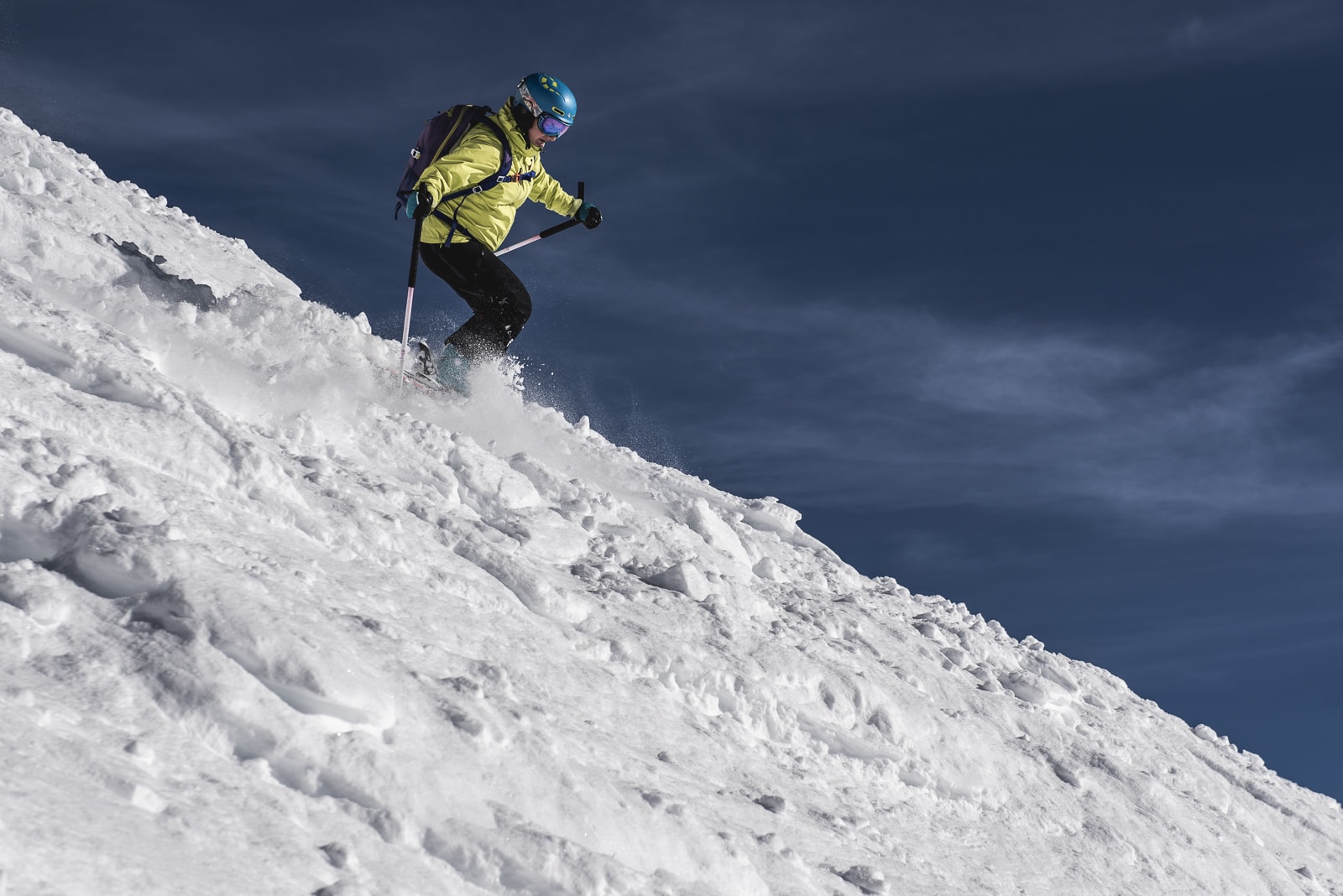
Turn Shape
Practice the turn shapes that you aspire to off-piste. If you aim to be skiing narrow gullies, practice skiing a narrow corridor on the piste, ensuring that you can maintain good speed control. Go out first thing in the morning when you can still see the tracks that the piste machines have left. Try and do a series of linked turns staying within a set number of piste machine tracks.
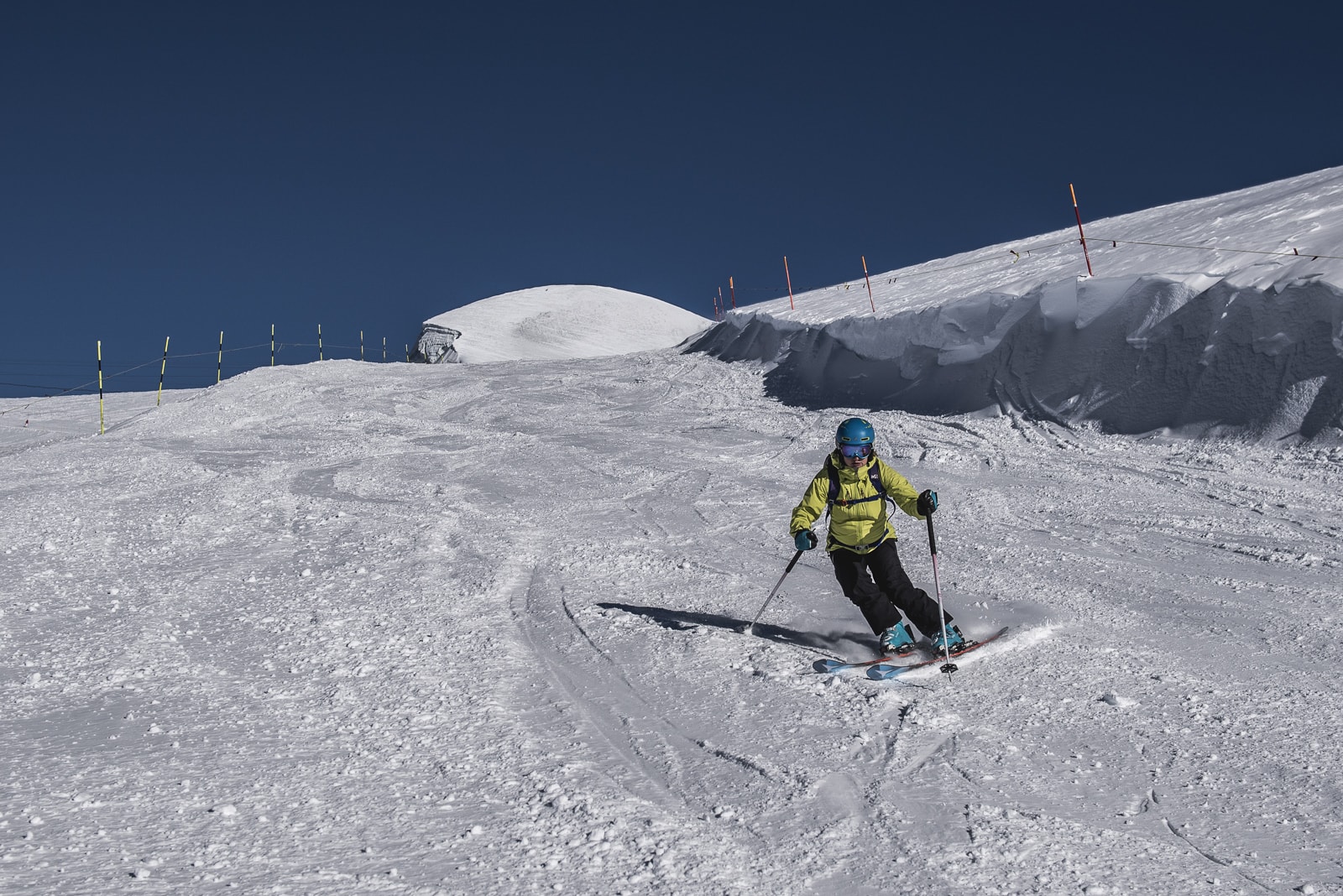
Flex
Skiing off-piste is much more about “balancing” than “being balanced”. We need to constantly adapt to the undulating terrain underneath our feet. In order to do this we need to be comfortable flexing and extending our legs. Spend time on piste ensuring that your legs aren’t fixed in one position. Move around. Flex down low so that your bottom is near your skis and stand up again.
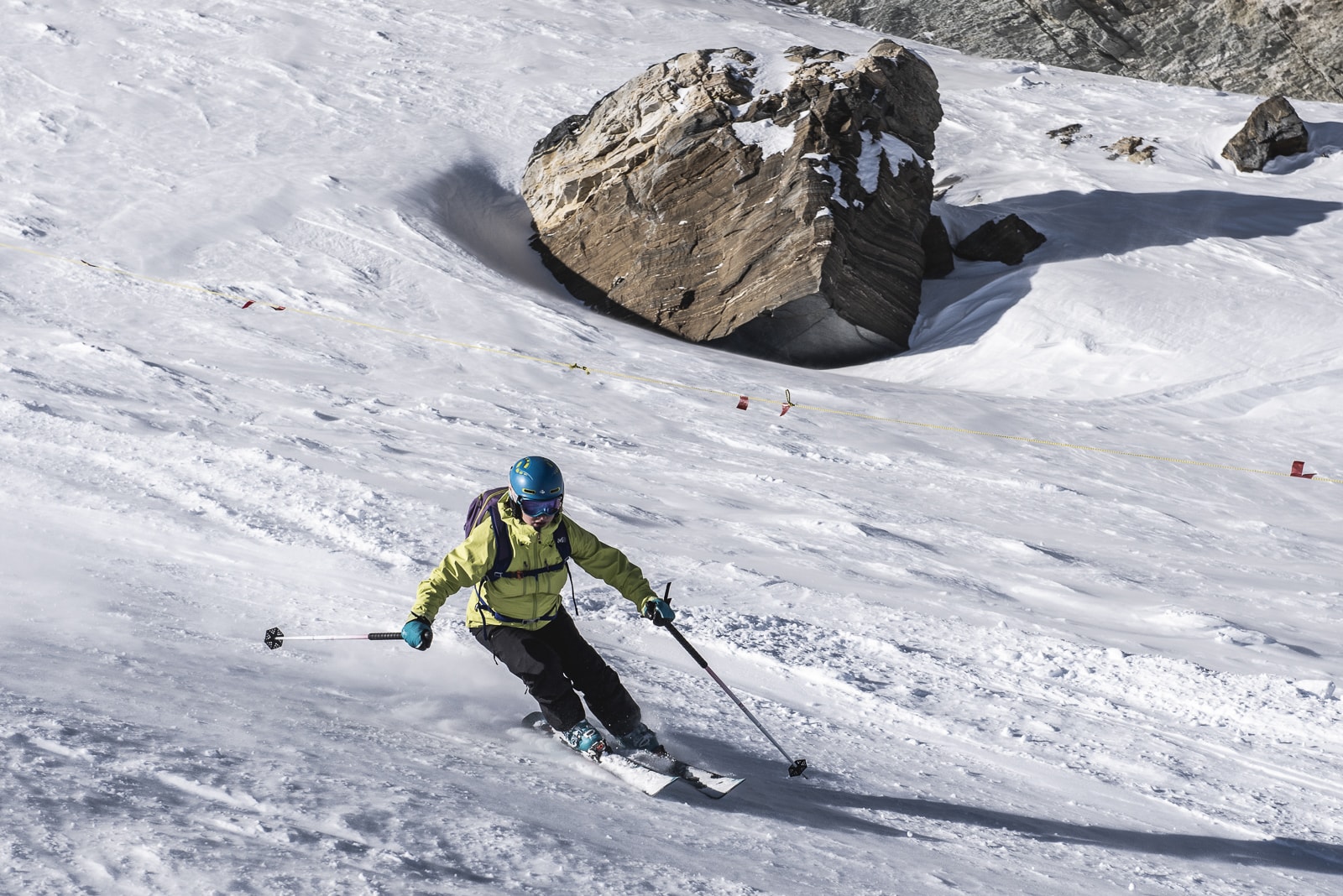
Same Thing, Same Time
Tune into what your skis and feet are doing, with the aim to be able to get them doing the same thing at the same time. You can also tune into if there is any noise coming from your skis. Are they clattering together at the back or the front? This is a sign that each foot isn’t doing exactly the same thing at the same time. Aim to get both feet to rotate and edge the same amount at the same time.
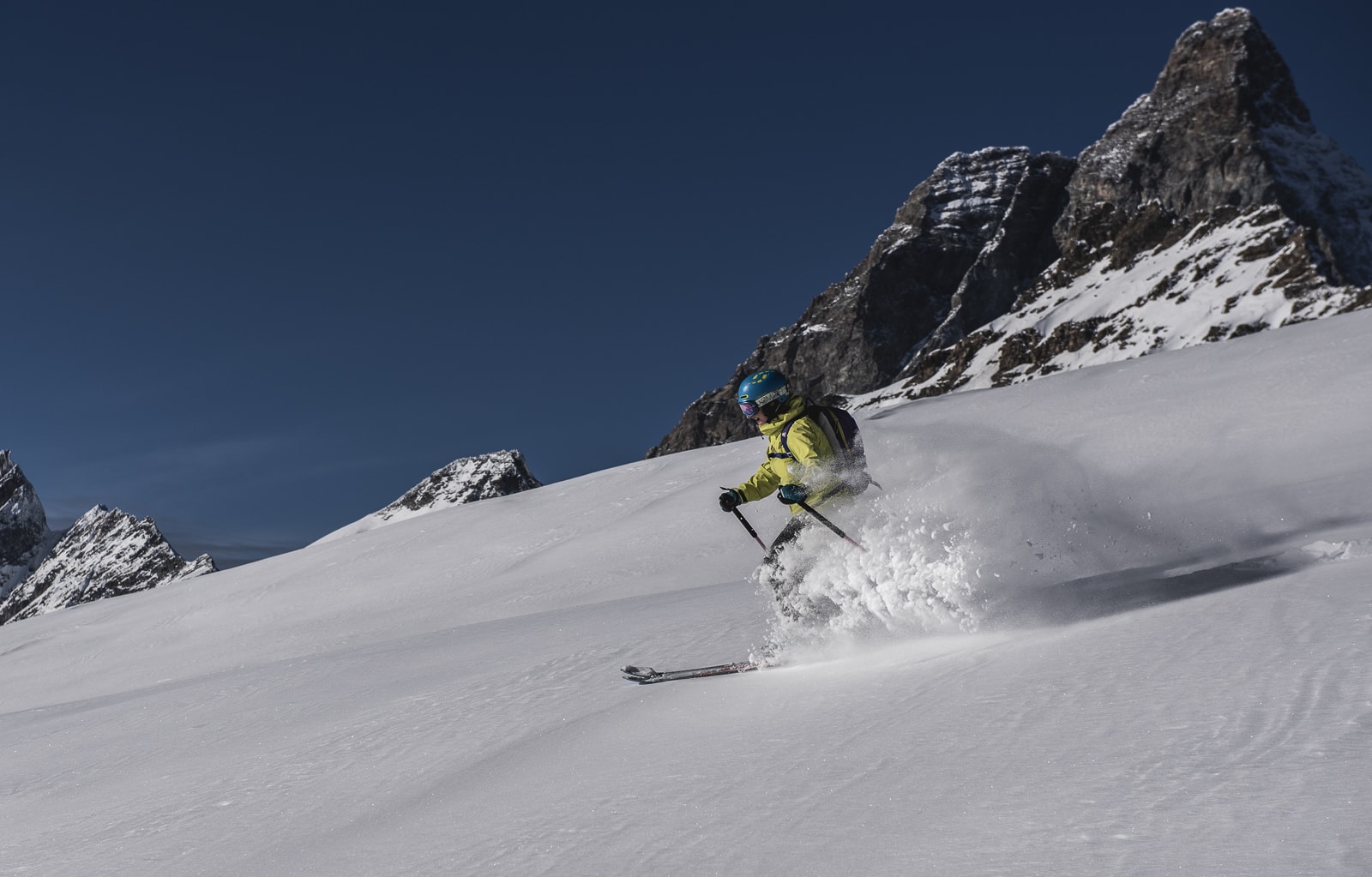
Off-Piste On-Piste
When the pistes are in less than ideal condition, this is your key practice time. Avoid the temptation of heading in for coffee when the pistes become scraped and icy, or chopped up and bumpy. This is exactly the moment to embrace the practice time and focus on some of the elements listed earlier.
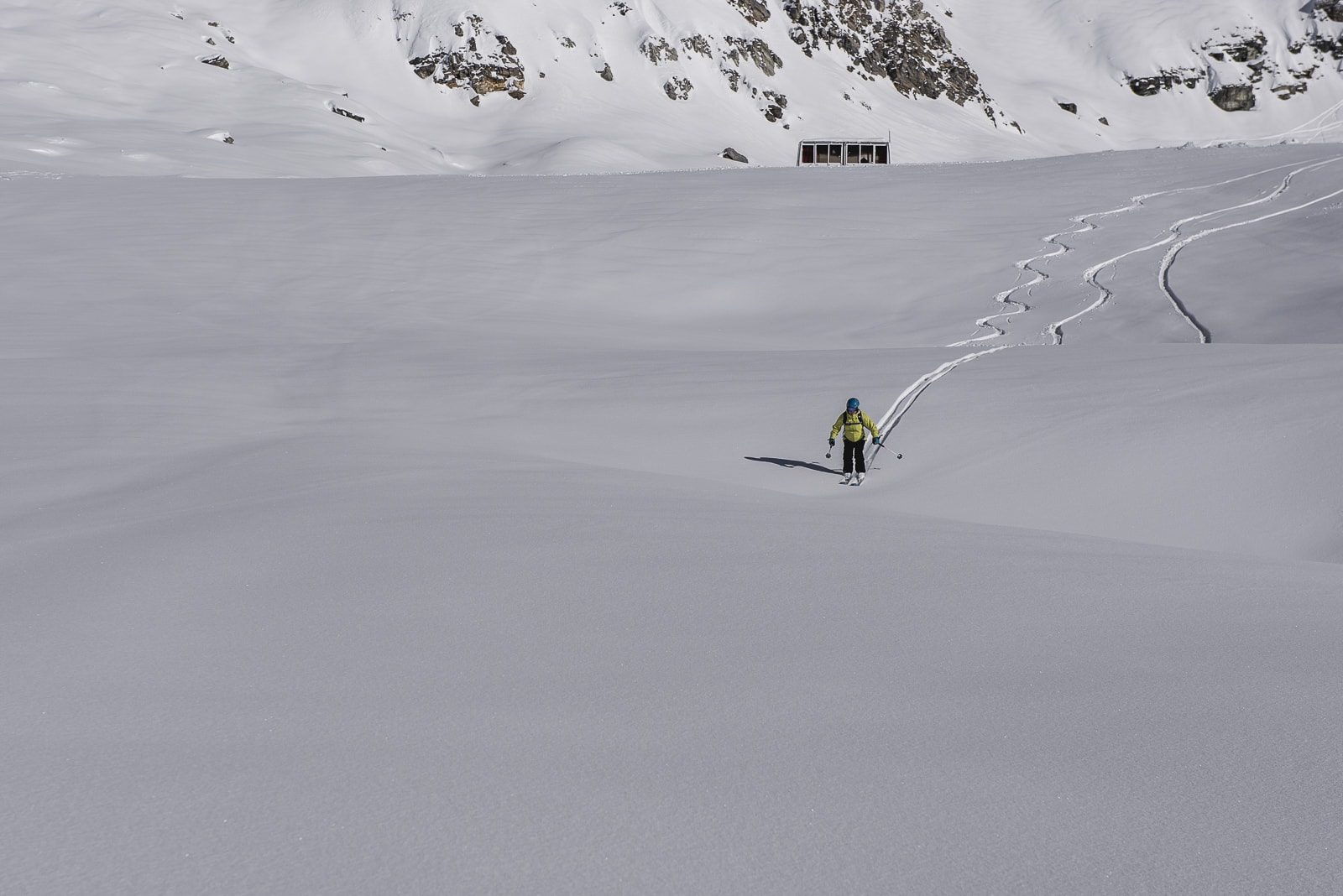
Enjoy the practice time and check back for our next article looking at solutions to some of the common problems that intermediate skiers face.
Click here to browse all items in our ski clothing collection.
All photos © Daniel Wildey
Alison Thacker is a member of the Jöttnar Pro Team, and is a BASI Level 4 ski coach. A passionate off-piste skier, she has travelled around the world in search of the best snow. Alison also runs Off Piste Performance, a ski guiding and instructing company based in Chamonix.
